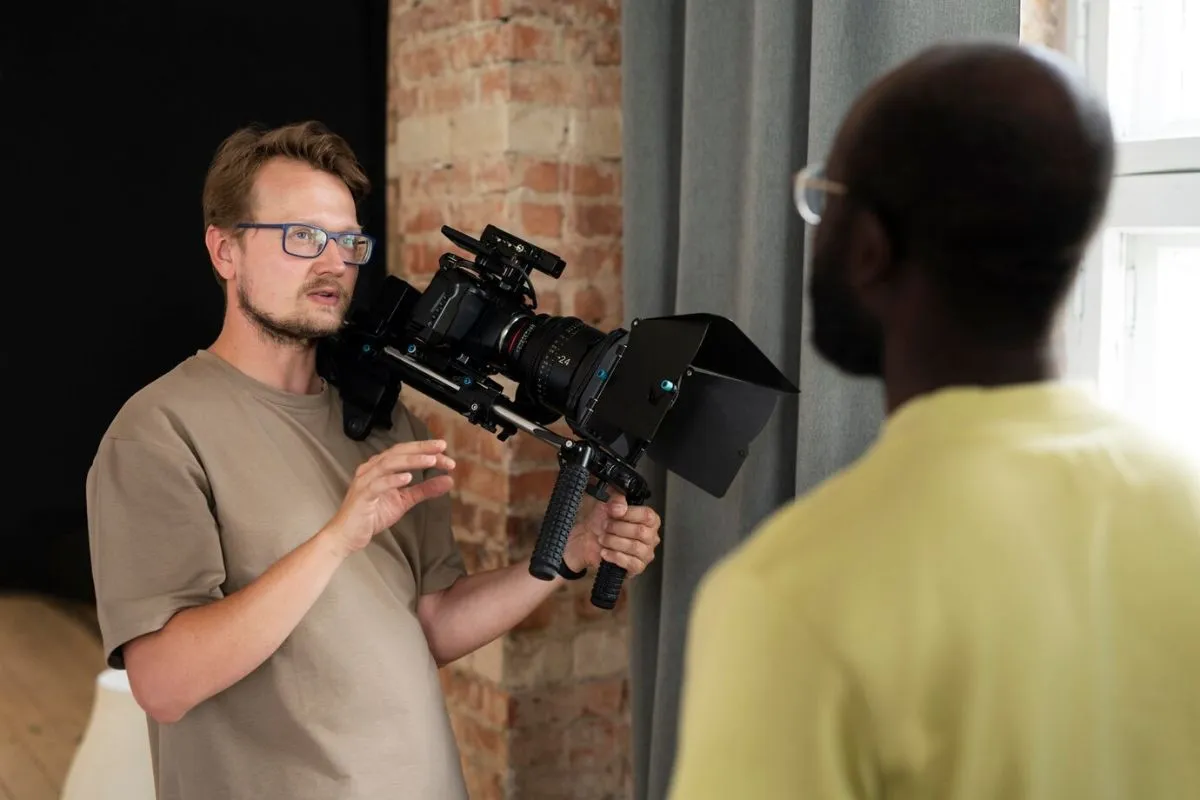Neural Storytelling in Filmmaking is a groundbreaking approach. By integrating neuroscience with cinematic arts, it offers a novel way to create and experience stories. This fusion of technology and creativity can unlock new dimensions of storytelling that were previously unimaginable.
It leverages artificial intelligence to enhance the creative process. AI algorithms analyze vast amounts of data to generate compelling narratives, assisting filmmakers in crafting more engaging and emotionally resonant stories. This method can streamline the scriptwriting process and introduce innovative plot developments that align with audience preferences.
This method is set to redefine narrative techniques. By utilizing neural data, filmmakers can create dynamic, adaptive stories that evolve based on viewers’ emotional responses. This interactive approach can lead to more immersive and personalized viewing experiences, transforming how audiences connect with films.
Furthermore, it opens up possibilities for more complex and multi-layered storytelling, pushing the boundaries of traditional filmmaking.
The Emergence of Neural Storytelling
The concept of neural storytelling has emerged as AI advances. This innovation is now making significant impacts on filmmaking. AI is complementing traditional storytelling techniques.
Utilizing vast data, neural networks generate compelling narratives. These narratives are both unique and emotionally engaging. For filmmakers, this opens a treasure trove of creative possibilities.
AI can now predict audience reactions. This aids in crafting scenes that resonate more deeply. Combining data with creativity results in richer experiences.
How Does Neural Storytelling Work?
At its core, neural storytelling employs deep learning algorithms. These algorithms process vast amounts of data. Here’s a breakdown of how it functions:
- Data Input: Texts, scripts, and historical narratives feed the algorithm.
- Pattern Recognition: The AI identifies patterns and trends.
- Story Generation: New, unique stories are generated based on these patterns.
This synergy between data and creativity enhances storytelling. It also allows for more dynamic and unpredictable narratives. Filmmakers can experiment without the constraints of traditional methods.
Emotional Depth and AI
Emotion is vital in filmmaking. It connects the audience to the narrative. AI’s ability to understand and replicate human emotion is impressive.
Neural networks analyze emotional arcs. This enables them to create scenes that evoke specific emotions. Filmmakers can craft emotionally rich sagas more effectively.
Using AI, scenes can be tailored to maximize emotional impact. This ensures a more engaged and responsive audience. Emotional storytelling becomes more precise and impactful.
Changing the Creative Process
Neural storytelling is reshaping the creative process. AI is now a collaborative tool for filmmakers.
With AI, filmmakers can quickly iterate on story ideas. This accelerates the brainstorming phase.
Here are some key areas where AI influences the creative process:
Scriptwriting Reinvented
AI-streamlined scriptwriting is transforming the industry. Scripts can be generated faster and with greater precision. AI ensures consistency in character development and plot structures.
The result is more coherent and engaging narratives. Filmmakers can focus more on directing and less on script fixes. AI becomes an invaluable writing assistant.
Pre-production Efficiency
Pre-production is crucial in filmmaking. AI can optimize this phase significantly.
Storyboards can be auto-generated, saving time and resources. Scene planning becomes more accurate.
This leads to smoother transitions from script to screen. Filmmakers can visualize their projects early on.
Impact on the Film Industry
The film industry is embracing neural storytelling. Studios and indie filmmakers alike are exploring its potential, driven by the promise of more immersive and engaging narratives.
The technology promises to level the playing field, allowing creators of all sizes to produce high-quality content with innovative storytelling techniques.
AI-driven narratives are more accessible than ever. This democratizes storytelling by reducing the barriers to entry for aspiring filmmakers. With powerful tools at their disposal, these creators can experiment with new forms of narrative and bring their unique visions to life.
Additionally, AI can assist in editing and post-production, further simplifying the filmmaking process.
Major studios benefit from AI through enhanced story accuracy. They can predict which narratives will succeed, using data-driven insights to guide their creative decisions. This minimizes financial risk and maximizes creativity, as studios can invest in projects with a higher likelihood of success.
Furthermore, AI can optimize marketing strategies, targeting audiences more effectively and boosting overall film performance.
Neural storytelling not only enhances creativity but also opens new avenues for audience engagement. Interactive and adaptive narratives can provide a more personalized viewing experience, attracting a broader audience.
As the technology continues to evolve, it will likely become an integral part of the filmmaking landscape, shaping the future of cinematic storytelling.
The Democratization of Filmmaking
Neural storytelling in filmmaking lowers entry barriers. Indie creators gain access to advanced technologies. This fosters innovation across the film community.
AI tools are becoming more affordable. This gives voice to diverse storytellers. The result is a richer and varied cinematic landscape.
Enhanced Audience Engagement
Audience engagement is critical for filmmakers. Neural storytelling allows for tailored experiences.
AI can personalize stories for different demographics. This ensures broader appeal and deeper connections.
The result is a more engaged and loyal audience base.
Future Prospects of Neural Storytelling
The future of neural storytelling is bright. Continuous advancements in AI will further enhance filmmaking. Here are some future trends to watch:
- Adaptive storytelling that changes in real-time.
- Interactive films powered by AI.
- Deeper emotional engagement through advanced analytics.
Filmmakers must stay abreast of these developments. Embracing AI can keep them at the cutting edge of the industry. The integration of AI will expand storytelling horizons.
Pushing Creative Boundaries
With neural storytelling, the sky is the limit. AI encourages experimentation and innovation. Filmmakers can push the boundaries of conventional narratives.
New genres and storytelling formats are emerging. AI allows for blending of different artistic styles.
The result is a vibrant and ever-evolving film industry.
Final Thoughts on Neural Storytelling
Neural storytelling in filmmaking is transformative. It blends AI with human creativity seamlessly.
For filmmakers, it opens up endless possibilities. AI-generated narratives add depth and complexity to films. This fusion of technology and art will shape the future of cinema.
By embracing these methods, filmmakers can stay ahead of the curve. This ensures they consistently deliver engaging and innovative content.
Frequently Asked Questions
What is neural storytelling in filmmaking?
Neural storytelling in filmmaking uses AI to create and enhance narratives. It involves deep learning algorithms to generate compelling stories.
How is AI changing scriptwriting?
AI accelerates scriptwriting by ensuring consistency and coherence. It helps in developing engaging plots and characters efficiently.
Can AI replicate human emotions in storytelling?
Yes, AI can analyze and replicate emotional arcs. This helps in creating narratives that evoke specific emotions effectively.
Is neural storytelling accessible to indie filmmakers?
Yes, AI tools are becoming more affordable. This allows indie filmmakers to utilize these advanced storytelling techniques.
What are future trends in neural storytelling?
Future trends include adaptive storytelling, interactive films, and deeper emotional engagement through analytics.




